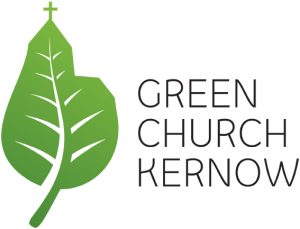Bishop Philip talks environmental stewardship
Environmental stewardship is a really helpful term.
It reminds us that we have a God given responsibility to look after and to care for the environment and that goes right back to Genesis and to God’s command to do exactly that. We are stewards of the earth and that’s a really high calling. If we look at the Genesis narrative, we see that we are part of the created order but we are given a very specific responsibility within that to care for, to husband and to look after the whole of the created order. This gives us great status but also gives us great responsibility, and I think we are becoming awake to and aware of the real seriousness of that responsibility now in a way that we never have before. So, environmental stewardship has got to be right at the top of the agenda of our responsibilities as Christians in how we act and behave in this world.
I am very committed to the Anglican Communion’s five marks of mission – to each of them and to all of them. The five marks of mission start with the responsibility to share the Good News of Jesus and they end with our responsibility to care for and steward the environment. I want to say that all five of those are really important and Jesus is at the heart of all of them – He is Lord of all, He is the Lord who died for us and who invites us into fellowship with Him and relationship with Him. He is Lord of creation – the one through whom all creation came into being and He is the one who calls us to care for the creation that He himself has made and loved. Indeed, I want to say that He didn’t just die for individual sinners, but for the re-creation of all things including the whole created order. So, all five marks of mission are really important to me; environmental stewardship and care for the environment no less than any of the others.
“We need to see everything we have as a gift from God”
When looking at how stewardship of the environment and creation fits together with our ideas of stewardship in terms of money, time and talents, I think I would go back to words which we often use in our services when giving the offering. David’s words taken from Chronicles, where he says in offering his people to the Lord “All things come from you and of your own do we give you”. We need to see everything we have as a gift from God. That means our time, our talents, our money, and the created world around us, which is also God’s gift to us. All of these things are God’s gifts to us and as his gifts; our responsibility is to offer them back to Him in the best way possible. They are given to us and we need to have an attitude of willing, generous, joyful givers in return. So, our stewardship of the environment is part of our worship and part of our offering, our giving back to the God who gives to us.
“..there were only a very few disciples who were witnesses to the resurrection and look at the global difference their witness made..”
 There are things churches can do to improve their environmental stewardship. I would absolutely want to commend the Green Church Kernow awards and the 10 pledges. There are simple, practical things that we can do that can make a difference. One of the problems is that we often feel like rabbits in the headlights – we feel that we are too small and there is nothing we can do. When we had our motion at general synod on this subject one of the speakers said; “let’s be realistic – we are tiny as a church and there is very little difference we can make”. In response to that a lady from London diocese stood up and said, “well actually there were only a very few disciples who were witnesses to the resurrection and look at the global difference their witness made”. I thought that was a powerful point. We are not powerless, we need to be actors and I commend the tools that the diocese of Truro have that enable us to be engaged actors in this process of making a difference to the natural world which is God’s gift to us.
There are things churches can do to improve their environmental stewardship. I would absolutely want to commend the Green Church Kernow awards and the 10 pledges. There are simple, practical things that we can do that can make a difference. One of the problems is that we often feel like rabbits in the headlights – we feel that we are too small and there is nothing we can do. When we had our motion at general synod on this subject one of the speakers said; “let’s be realistic – we are tiny as a church and there is very little difference we can make”. In response to that a lady from London diocese stood up and said, “well actually there were only a very few disciples who were witnesses to the resurrection and look at the global difference their witness made”. I thought that was a powerful point. We are not powerless, we need to be actors and I commend the tools that the diocese of Truro have that enable us to be engaged actors in this process of making a difference to the natural world which is God’s gift to us.
